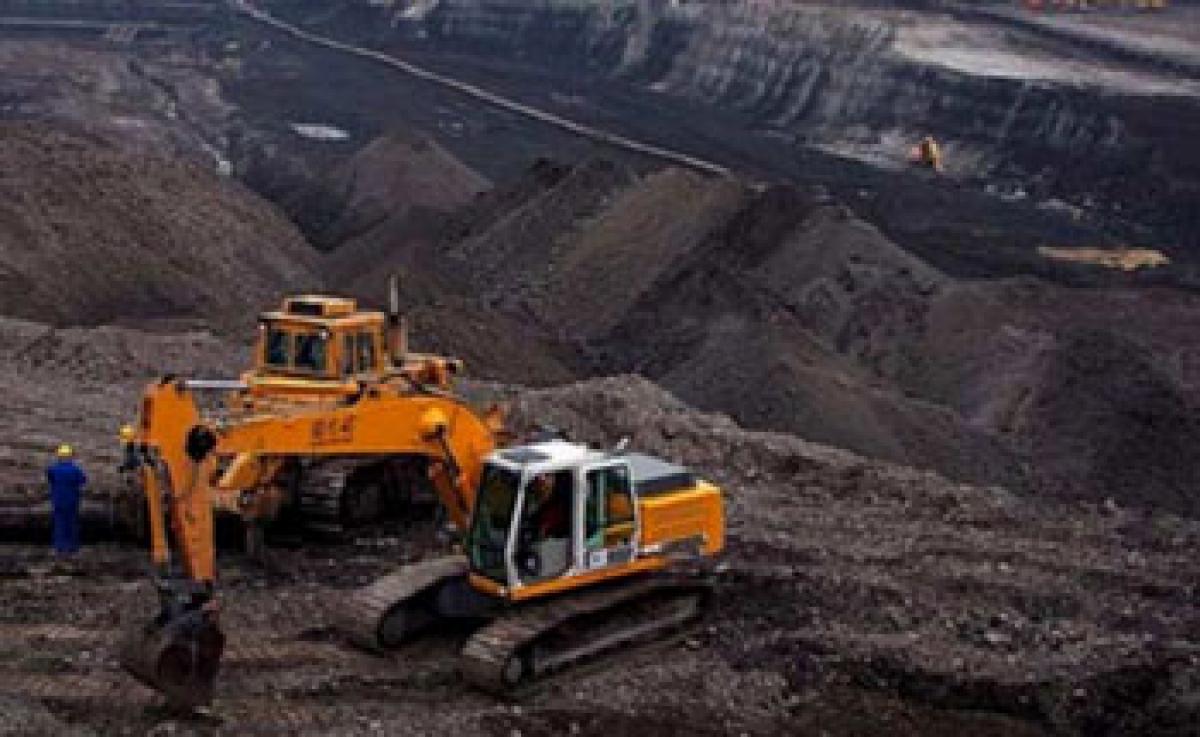Why AP retreated on bauxite mining

In what appears to be a renewed attempt to revive the controversial bauxite mining in the Agency area of Visakhapatnam, the Andhra Pradesh government has issued a GO allowing bauxite mining in 1,212 hectares of forest land with certain conditions.
 Hyderabad: In what appears to be a renewed attempt to revive the controversial bauxite mining in the Agency area of Visakhapatnam, the Andhra Pradesh government has issued a GO allowing bauxite mining in 1,212 hectares of forest land with certain conditions. However, following widespread protests by tribals, it has denied any such move, and attributed it to the previous government. It has kept the GO in abeyance.
Hyderabad: In what appears to be a renewed attempt to revive the controversial bauxite mining in the Agency area of Visakhapatnam, the Andhra Pradesh government has issued a GO allowing bauxite mining in 1,212 hectares of forest land with certain conditions. However, following widespread protests by tribals, it has denied any such move, and attributed it to the previous government. It has kept the GO in abeyance.
Now, the government has officially released a 19-page White Paper that focuses on high-quality bauxite available in Jerrela deposits located at Chintapalle region in Visakhapatnam. AP comes second in India’s overall bauxite production, with 615 bauxite resources in million tonnes.
The White Paper includes the agreements the previous Congress governments entered into with Anrak and Jindal Southwest, the cost of the Anrak plant at Makavarapalem, the need for the Andhra Pradesh Mineral Development Corporation (APMDC) to take up mining since the area falls under Schedule V, the several GOs and other documents the State and Centre had issued in the past, the Kala Committee visit, former Union Minister for Forests and Environment Kishore Chandra Deo getting the Union Cabinet to cancel permission for bauxite mining and other developments.
The White Paper mentions that the Union Ministry of Mines has advised the State Government to take into consideration the Tribal Advisory Council’s (TAC) recommendations (since it is statutory). But the Paper glosses over the fact that the TAC of the then Congress government with P Balaraju as the Tribal Welfare Minister passed a resolution against bauxite mining. Bauxite mining has been staunchly opposed by the tribals in Visakhapatnam for fear of losing their habitat as it would harm eco system of the hills. The government instead of protecting the interests of tribals is trying to encouraging mining activity in the region.
The 1997 Samata Judgement of the Supreme Court prohibits private companies from mining tribal land, but the lease controversially circumvented it by fronting the Andhra Pradesh Mineral Development Corporation, a nearly defunct public enterprise, as the mine’s legal owner. The APMDC would receive free mining equipment and logistical support from AnRak, and then sell the bauxite at cut-rate to the company.
In September 2014, the Comptroller and Auditor General found that although the bauxite mines were initially valued at Rs 11,500 crore, the contracts for AnRak and Jindal Steel (which won rights to a smaller bauxite deposit in Araku Valley) list their worth as just Rs 258 crore combined – a sharp undervaluation that would decimate not only the companies’ licence fees, but also the 20% share of profits they must invest in rehabilitating the 270 tribal villages the mine would displace.
A September 2014 report in the Business Standard quoted a series of executives saying that if anybody could break the logjam over bauxite, it is the incumbent government of AP only and AnRak has finished building a 1.5 million tonne bauxite refinery in Visakhapatnam, after optimistically announcing that the company would soon be cleared to start mining.
On September 20, 2015, the hundreds of adivasis from this region have protested over the rumours that work on the mine’s foundation would soon begin. They expressed serious concern that the bauxite mine would devastate the fragile ecology of the hills, cover the fields in toxic dust, and plunge adivasis into destitution.
At the moment, it is impossible to convince the local tribals without the support of local tribals. The incumbent government should go by the law, which requires a project in scheduled area to be scrapped if the local tribal community opposes it.
Moreover, the government is yet to constitute the Tribal Advisory Council, a statutory body which is solely empowered to take decision on taking up any activity in the Fifth Schedule areas.
Besides this, any activity to be taken up in the Agency area has to be first cleared by grama sabhs, and based on their recommendations, the TAC has to pass the resolution, which is then forwarded to the Governor, who alone is empowered to decide the matter.
By G Rajendera Kumar

